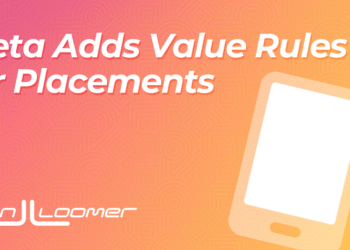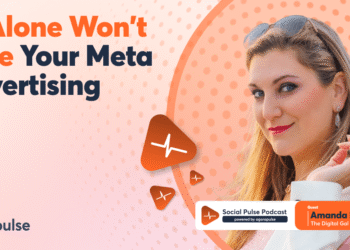
If you’ve been scrolling through Pinterest lately and feeling like there are more ads than ever before, you’re not imagining things.
As Pinterest has evolved from a simple inspiration board into a major shopping and search engine, the platform has significantly ramped up its advertising presence.
With more businesses recognizing Pinterest’s power to drive sales and traffic, Promoted Pins have become increasingly common in your home feed, search results, and related Pins sections.
This surge in advertising has left many users wondering: can you block Pinterest ads?
The short answer might surprise you, but more importantly, there are several workarounds that can help reduce the ad overwhelm you’re experiencing. Let’s dive into what’s actually possible and what isn’t when it comes to controlling your Pinterest ad experience.
Why You’re Seeing More Pinterest Ads in 2025
Pinterest’s transformation into a shopping powerhouse has been years in the making, but 2025 represents a significant acceleration of this trend.
This shift makes perfect sense from a business perspective. When Pinterest users save Pins, click through to websites, and search for specific products or ideas, they’re demonstrating clear purchase intent. This behavior is incredibly valuable to advertisers, who are willing to pay premium rates to reach people when they’re actively looking for solutions.
The data backs up this advertising growth. More businesses are recognizing Pinterest’s unique position in the customer journey, sitting right at that sweet spot between inspiration and action. Unlike other social platforms where ads can feel intrusive, Pinterest ads often blend seamlessly with organic content because they’re designed to be useful and inspiring rather than disruptive.
In fact, if you’re shopping for something specific — like a new rug, a storage solution, or ideas for a birthday gift — Pinterest ads can actually enhance your experience. Many Promoted Pins surface highly relevant, well-reviewed products you may not have found otherwise, helping you discover options faster without having to leave the app.
As Pinterest’s algorithm has become more sophisticated at understanding user preferences and behaviors, advertisers can target their ideal customers with laser precision. This means you’re likely seeing more ads simply because they’re more relevant to your interests than ever before.
The platform’s emphasis on shopping features — from Product Rich Pins to Shopping Spotlights — has also created more opportunities for businesses to advertise their products directly within the Pinterest ecosystem.
When users can purchase items without leaving Pinterest, the platform becomes an even more attractive advertising destination.
Can You Actually Block Pinterest Ads?
Here’s the truth that might disappoint some users: Pinterest doesn’t offer a built-in setting to completely disable ads.
Unlike some platforms that offer ad-free subscription tiers, Pinterest’s business model relies heavily on advertising revenue, and they’ve chosen not to provide an official way to opt out entirely.
However, this doesn’t mean you’re completely powerless. Pinterest does provide some controls that can help you manage your ad experience, even if they don’t eliminate ads completely.
You can mark ads as irrelevant or repetitive when you encounter them. When you see a Promoted Pin that doesn’t interest you, look for the three dots in the corner and select options like “Hide this ad” or “Not relevant.” While this won’t stop all ads, it helps Pinterest understand what you don’t want to see and can reduce similar ads in the future.
Pinterest also allows you to manage your personalization settings to some degree. In your account settings, you can limit how Pinterest uses your activity for ad targeting. This won’t reduce the number of ads you see, but it can make them feel less targeted and potentially less intrusive.
The platform’s ad preference controls let you see why you’re being shown specific ads and adjust some targeting categories. You can access these through your privacy settings, though the options are somewhat limited compared to other major platforms.
It’s worth noting that even these limited controls have their restrictions. Pinterest’s algorithm is constantly learning from your behavior, so even if you hide certain types of ads, new ones that fit your interest profile will continue to appear.
Workarounds That Help Reduce Pinterest Ads
While you can’t eliminate Pinterest ads entirely through official channels, several workarounds can significantly reduce their impact on your browsing experience.
Use a Pinterest Ad Blocker Browser Extension
Browser extensions remain one of the most effective ways to reduce Pinterest ads. Popular ad blockers like uBlock Origin or AdBlock can successfully filter out many Promoted Pins when you’re using Pinterest on desktop.
These tools work by identifying and blocking elements on web pages that are marked as advertisements. Since Pinterest ads are often labeled as “Promoted” or contain specific advertising markup, many ad blockers can successfully hide them from view.
However, it’s important to understand the limitations. Ad blockers aren’t perfect, and some Pinterest ads may still slip through, especially newer ad formats that haven’t been added to blocking lists yet. Additionally, Pinterest occasionally updates how their ads are delivered, which can temporarily reduce ad blocker effectiveness until the extensions catch up.
Some users report better results when combining multiple ad blocking tools or using browsers like Brave that have built-in ad blocking capabilities specifically designed to handle modern web advertising.
Use Pinterest on Desktop with Privacy-Focused Browsers
Your choice of browser can significantly impact your Pinterest ad experience. Privacy-focused browsers like Brave, Firefox with strict privacy settings, or Safari with enhanced tracking protection often reduce the number and relevance of ads you see.
These browsers work by blocking tracking scripts and cookies that Pinterest uses to build detailed profiles of your interests and browsing habits. When Pinterest has less data about you, their ads become less targeted and potentially less frequent.
Brave browser deserves special mention because it blocks ads and trackers by default while still allowing websites to function properly. Many users report a noticeably cleaner Pinterest experience when using Brave compared to Chrome or other mainstream browsers.
You can also manually configure browsers to be more privacy-conscious. In Firefox, enabling “Enhanced Tracking Protection” in strict mode can reduce ad personalization. Chrome users can disable third-party cookies and limit ad personalization through Google’s ad settings.
Clear or Limit Your Pinterest Interest Profile
Pinterest builds detailed profiles of your interests based on your activity: what you save, search for, click on, and spend time viewing. By periodically clearing or limiting this data, you can reduce how precisely Pinterest can target ads to you.
Start by reviewing your Pinterest privacy settings and clearing your search history. You can also remove interests that Pinterest has automatically added to your profile based on your activity. While this won’t stop ads from appearing, it can make them feel more generic and less intrusive.
Consider being more mindful about your Pinterest activity if ad targeting bothers you. Avoid clicking on Promoted Pins unless you’re genuinely interested, as this signals to Pinterest that you’re receptive to advertising. Similarly, be selective about what you save and search for, understanding that this data feeds directly into ad targeting algorithms.
Some users create separate Pinterest accounts for different interests to compartmentalize their data and reduce cross-pollination between different types of advertising.
Final Word – Should You Try to Block Pinterest Ads?
For most everyday Pinterest users, the answer depends on how much ads bother you versus how much effort you’re willing to put into reducing them. The workarounds we’ve discussed can meaningfully reduce your ad exposure, but they require some technical know-how and ongoing maintenance.
If you use Pinterest primarily for personal inspiration and find ads disruptive to your experience, implementing browser-based ad blocking and privacy controls makes sense. The combination of a good ad blocker and privacy-focused browsing can create a much cleaner Pinterest experience.
However, it’s worth considering that Pinterest ads are often more relevant and useful than advertising on other platforms. Because Pinterest functions as a discovery engine, many ads actually provide valuable product recommendations and ideas that align with your interests. Some users find that completely blocking ads makes them miss out on genuinely useful discoveries.
Remember that Pinterest offers genuine value to both users and businesses. While ads might sometimes feel overwhelming, they also help keep the platform free to use and enable businesses to reach customers who are genuinely interested in what they offer. Finding ways to manage your ad experience while still supporting the platform’s sustainability is ultimately the most balanced approach.
Frequently Asked Questions
Is there a way to completely eliminate Pinterest ads?
No official way exists within Pinterest to completely disable ads. However, browser extensions like uBlock Origin can significantly reduce the number of ads you see when using Pinterest on desktop.
Why are Pinterest ads more targeted than they used to be?
Pinterest has significantly improved its AI and machine learning capabilities, allowing for more precise targeting based on user behavior, search history, and engagement patterns.
Do privacy settings actually reduce Pinterest ads?
Privacy settings can make ads less personalized but typically don’t reduce the total number of ads you see. They’re more about limiting data collection than ad frequency.
Are Pinterest ads different from other social media ads?
Yes. Pinterest ads tend to be more product and solution-focused since the platform functions as a discovery engine. They often blend more naturally with organic content compared to other social platforms.
Can businesses opt out of Pinterest advertising entirely?
Businesses can choose not to run ads on Pinterest, but they cannot prevent their competitors from advertising or stop all ads from appearing to users interested in their industry.

The post Can You Block Pinterest Ads? Honest Answers & Workarounds. appeared first on Tailwind Blog.













